10 Low-Carb Foods That Are Actually Bad for You, Dietitians Say

Ever since the late 90s, low-carb diets—those that drastically limit the number of carbohydrates one consumes—have been at the forefront of the weight-loss industry. Though the Dietary Guidelines for Americans recommend that carbohydrates should make up 45 to 65 percent of your total daily calorie intake, a low-carb diet usually means eating 100 grams or less of carbohydrates per day.The theory goes that by pushing your body into a state of ketosis, a metabolic state in which you burn fat instead of glucose, you’ll drop more pounds. To enter such a state, people who follow low-carb diets will typically forego added sugars, grains, refined carbohydrates such as those found in cookies or crackers, fruit, some vegetables, and more.
However, a 2023 meta-analysis published in JAMA Network Open has found that not all low-carb foods are created equally when it comes to weight loss. Those researchers reviewed data from three large prospective cohort studies that included over 123,000 subjects and determined that low-carb diets that focused on high-quality macronutrients from healthy plant-based foods were associated with less weight gain. Meanwhile, low-carb diets centered on animal-sourced proteins, fats, or refined carbohydrates were associated with more weight gain.
Read on for the 10 worst low-carb foods when you want to move the needle on the scale.
RELATED: 15 Low-Carb Foods Proven to Melt Fat, Says New Research.
1
Sausages
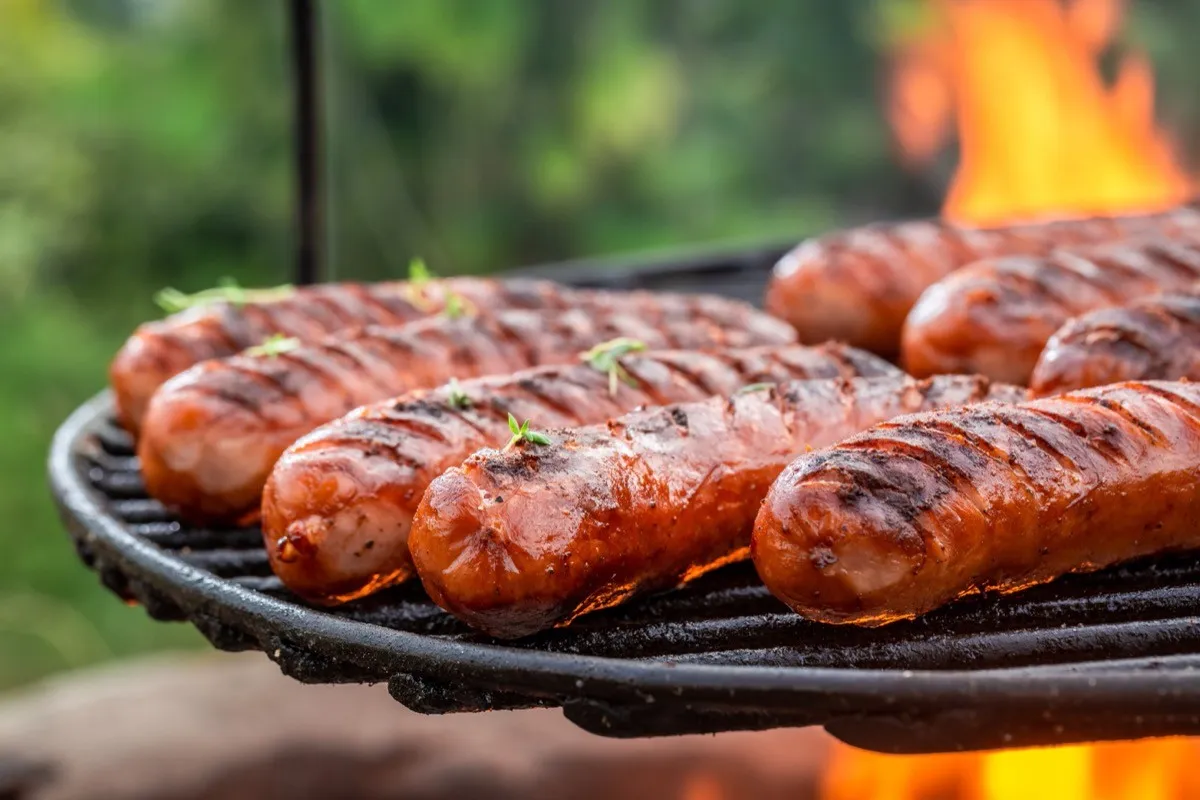
In general, processed meats are best avoided for your health because they’re high in sodium and trans fats—both of which are unhealthy for your heart. Experts say they can also contribute to weight gain despite being low in carbohydrates.
Michelle Routhenstein, MS, RD, CDCES, CDN, a preventive cardiology dietitian at Entirely Nourished, says this is true regardless of type: Sausages made of processed beef, pork, chicken, or turkey can all slow movement on the scale.
“These are low in carbs but high in salt, which can lead to water retention and bloating, potentially hindering weight loss efforts,” she explains.
2
Low-carb cookies or crackers
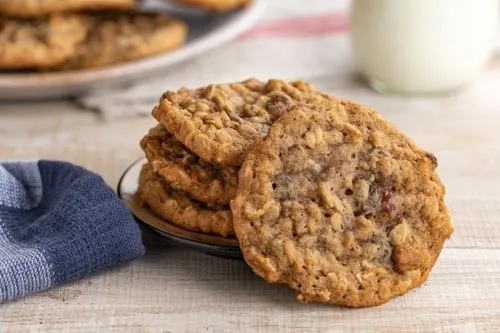
If you eat low-carb cookies or crackers in the place of more traditional pre-packaged snacks, this may help you lose weight. However, experts note that these are still highly processed and can be labeled misleadingly, leading to slowed progress.
“Although these may be low in carbs, they are often higher in fat and total calories since they often use ground nuts and seeds in them,” points out Liz Weinandy, RD, a registered dietitian at The Ohio State University Wexner Medical Center.
She notes that rather than eating low-carb processed foods, it’s better to eat healthy carbs from natural sources—for instance, fruits, vegetables, legumes, and whole grains.
“Time and time again, studies show those who eat more plant foods have better health and lower risks for many chronic diseases,” the dietitian says. “A better approach would be to lower the amount of ultra-processed carbs,” even those that are labeled as being low in carbohydrates.
RELATED: 6 Fruits to Avoid If You’re Trying to Lose Weight, Doctor Says.
3
Red meat
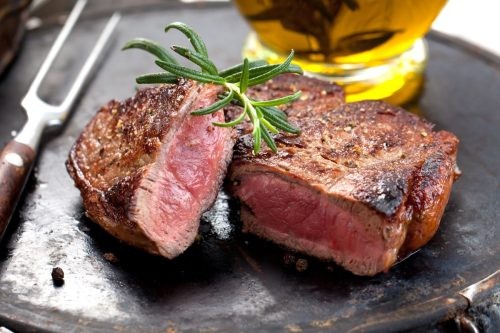
If you’ve been on TikTok lately, you may have noticed the viral trend of the “carnivore diet,” a restrictive meal plan in which dieters eat only meat and other animal products, such as eggs and dairy. However, experts say that not only is this a heart health hazard, but it may also backfire when it comes to weight loss.
“Fatty red meat, like ribeye steak, contains significant amounts of saturated fat, which can increase insulin resistance and inflammation, thereby hindering progress toward weight loss goals,” says Routhenstein.
The dietitian notes that deli meats are also poor additions to your weight loss diet: “Processed meats like salami are high in saturated fats, sodium, and preservatives, which can contribute to weight gain and cardiovascular problems.”
4
Low-carb cocktails and beer
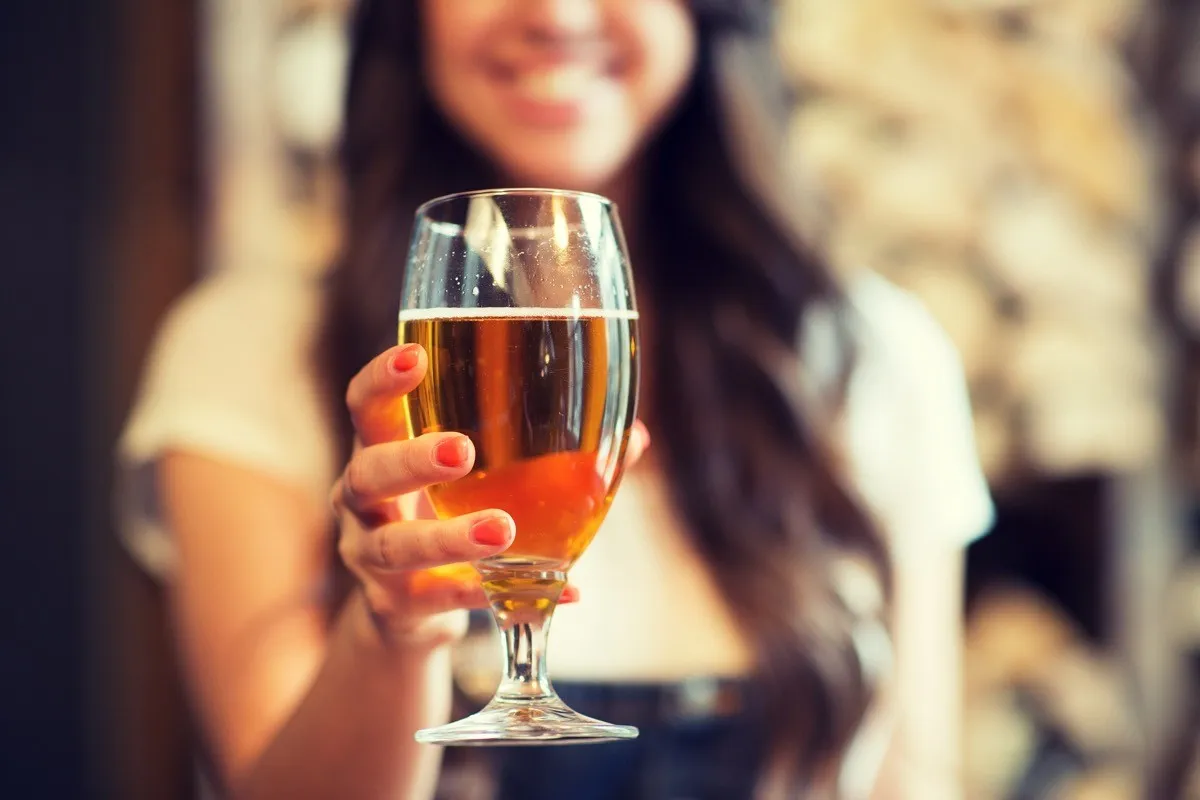
When you want to lose weight, it’s a good idea to cut back on your alcohol consumption. But simply switching to low-carb cocktails or beer at your previous volume is unlikely to yield the results you’re after.
“Even low-carb alcohol still has calories in it, and these can add up,” says Weinandy, noting that alcohol slows down the metabolism. “Most beverages with calories, if consumed regularly, can thwart weight loss efforts. This is why water and calorie-free tea and coffee is recommended over any sugary beverage.”
RELATED: 7 Foods to Avoid With High Blood Pressure, Doctors Say.
5
Butter
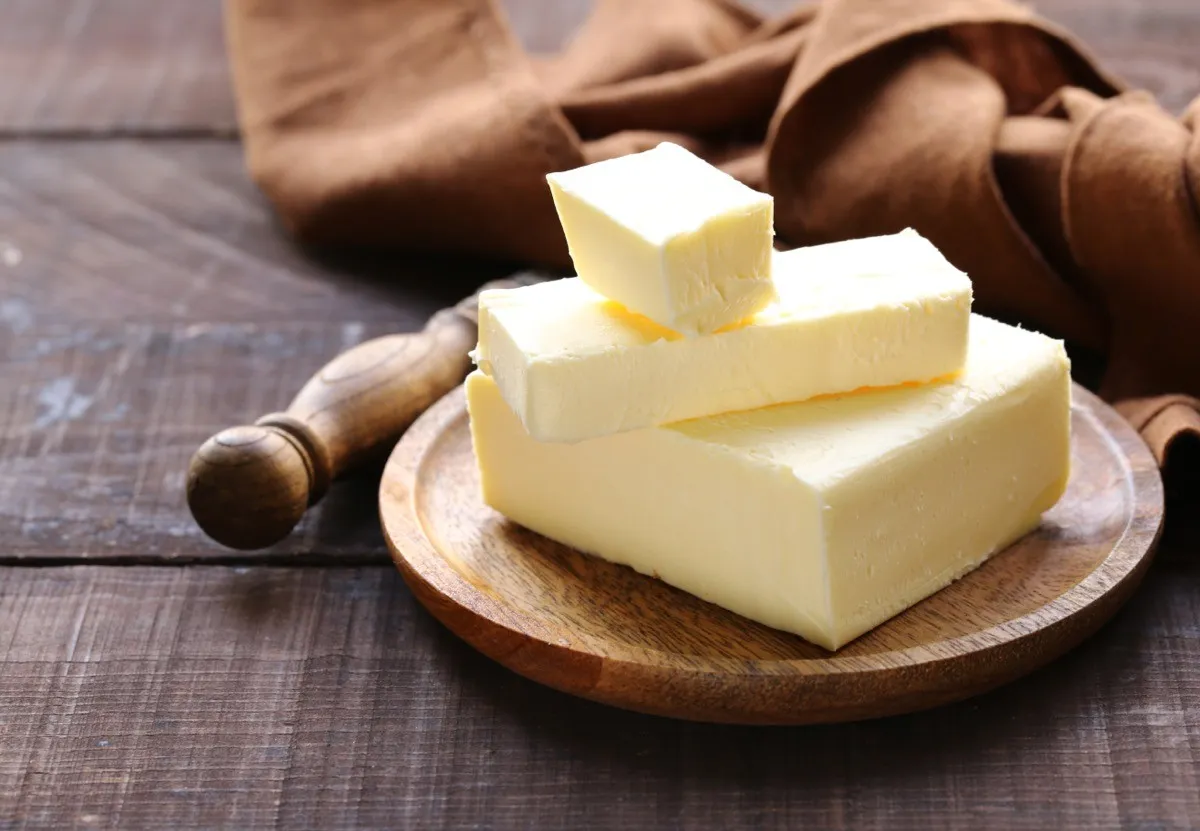
When you’re following a low-carb diet, it’s best to reach for high-quality oils and fats to cook with—for instance, extra virgin olive oil.
“Butter, although it doesn’t contain carbs, is calorically dense and high in saturated fat, which can impede weight loss goals by contributing to excess calorie intake,” says Routhenstein.
6
Cheese
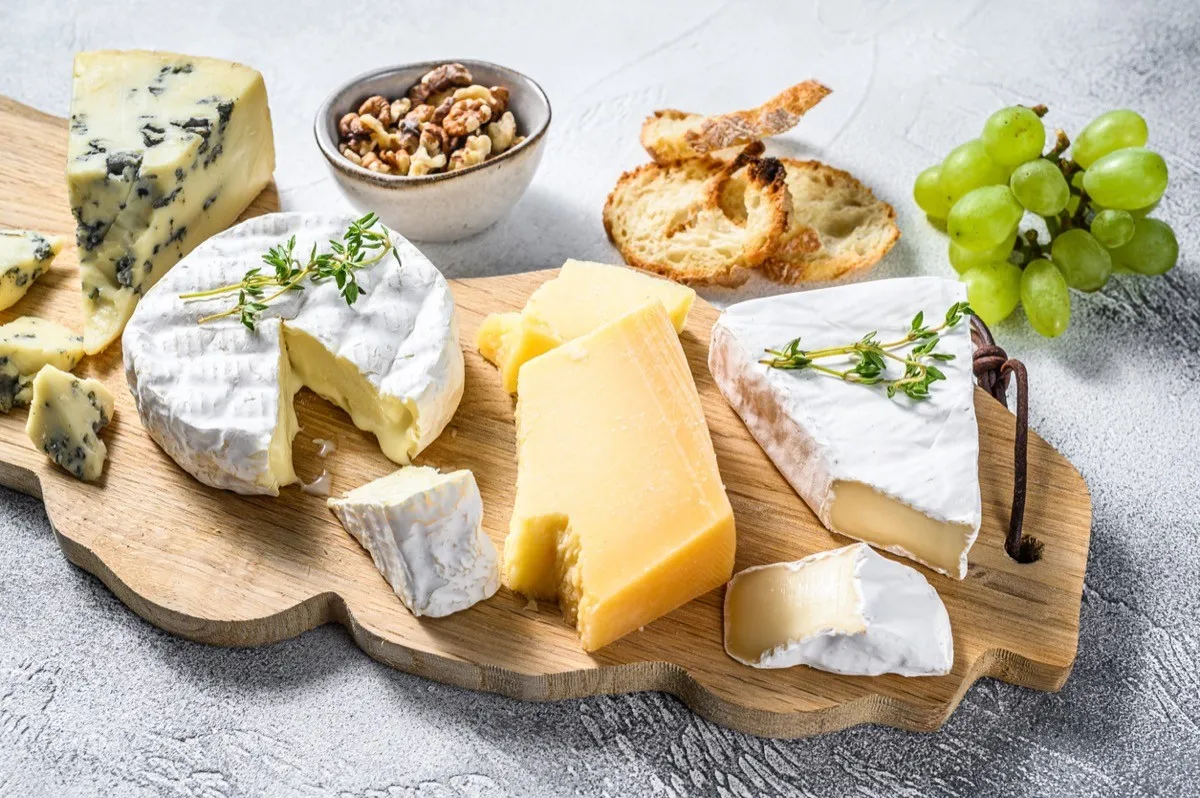
Most types of cheese contain few or no carbs—but that doesn’t mean they’ll necessarily result in weight loss.
For instance, cream cheese—despite being low in carbs—is rich in saturated fats and calories. “Excessive consumption of cream cheese may lead to weight gain and negatively affect heart health,” warns Routhenstein.
RELATED: The 3 “Ultraprocessed” Foods You Must Avoid for a Longer Life, 30-Year Study Finds.
7
Mayonnaise
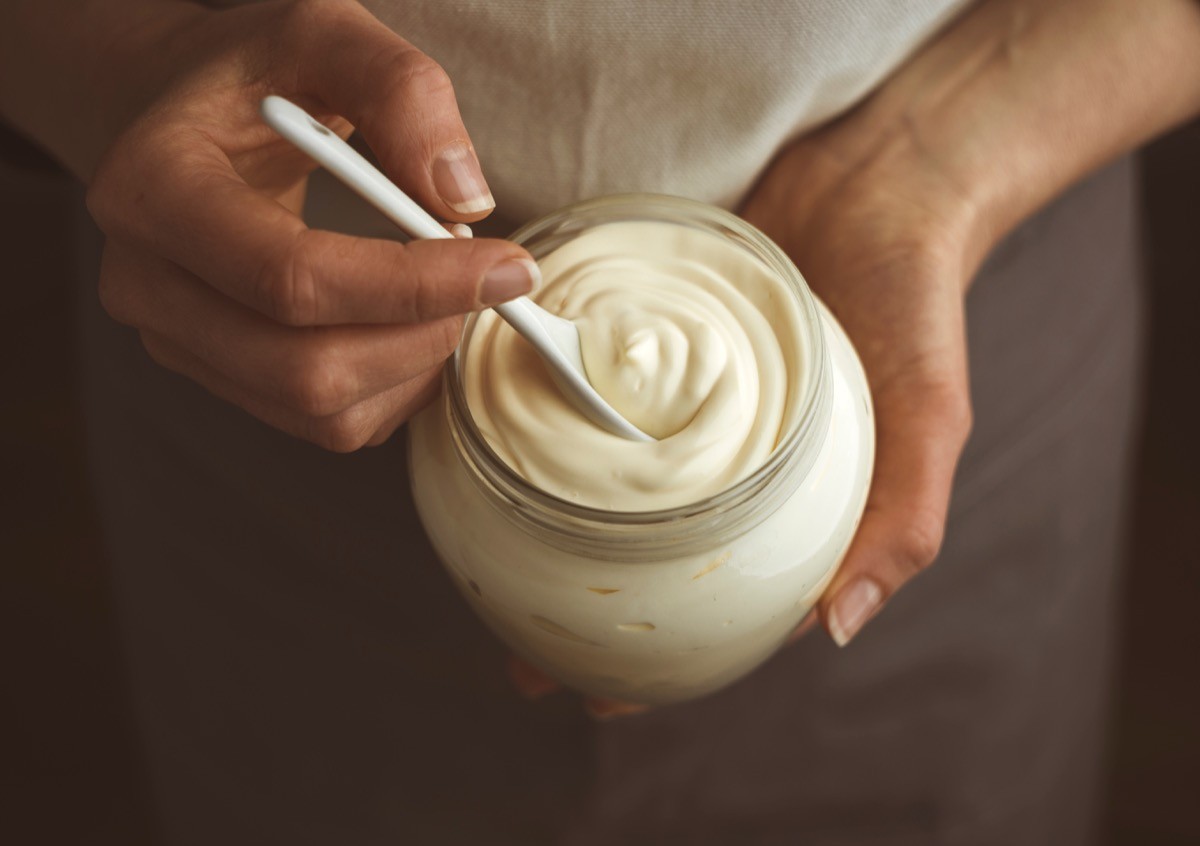
Condiments are often a hidden source of calories—which is why they can easily sabotage your weight loss goals if not portioned out carefully.
“Just one tablespoon of mayonnaise, about the size of your thumb from the tip to where it meets your palm, is 100 calories,” notes Weinandy. “It’s easy to use two to three tablespoons on a single sandwich. Low-carb? Yes. Low calorie? No!”
8
Whipped cream
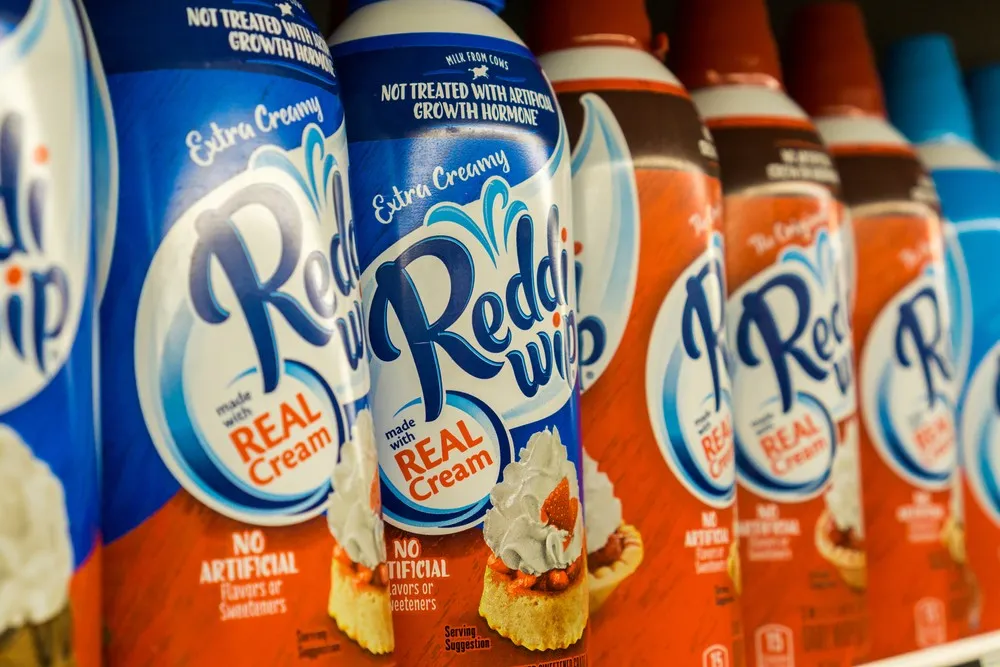
Whipped cream contains only 1.75 grams of carbohydrates per quarter cup, yet Routhenstein warns against it.
“Whipped cream is low in carbs but high in saturated fats and sugars, which can lead to weight gain and increased risk of heart disease when consumed in excess,” she says.
RELATED: Adding 2 Key Things to Your Diet Can Help You Lose Nearly 13% of Body Weight, Study Shows.
9
Nuts and seeds
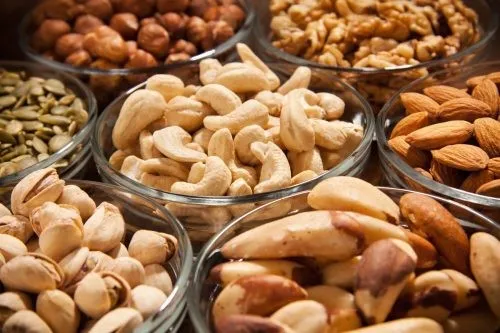
Nuts and seeds can be a nutrient-dense snack that helps keep you fuller for longer. However, they’re also calorie-dense—and this can lead to weight gain if you don’t consider portion control.
“Nuts and seeds are powerhouses of nutrients, containing many different micronutrients such as magnesium, zinc, selenium, and fiber. However, they are high in fat and calories, too,” says Weinandy.
She notes that though nuts contain healthy, monounsaturated fats, including Omega-3 fatty acids, the calories will still add up and can prevent weight loss.
10
Artificial sweeteners
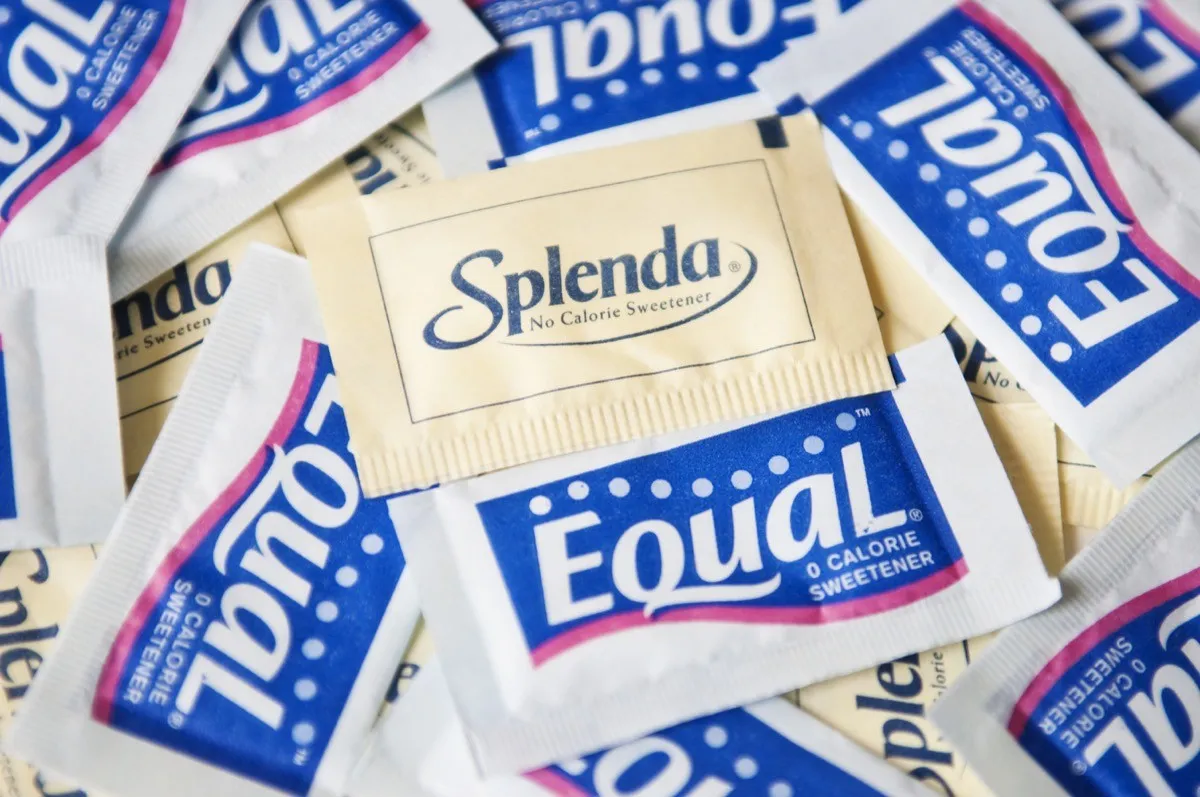
Though it’s a good idea to minimize sugar on any diet plan, some experts say that replacing it with artificial sweeteners can backfire.
“Research is mixed on sugar substitutes, with some studies showing they can help with weight loss and others showing no benefit or even worse—that they may increase appetite. There may even be a larger negative to using these, though. There is concern they may negatively affect the gut microbiome, and over time, this can affect many aspects of our health,” warns Weinandy.